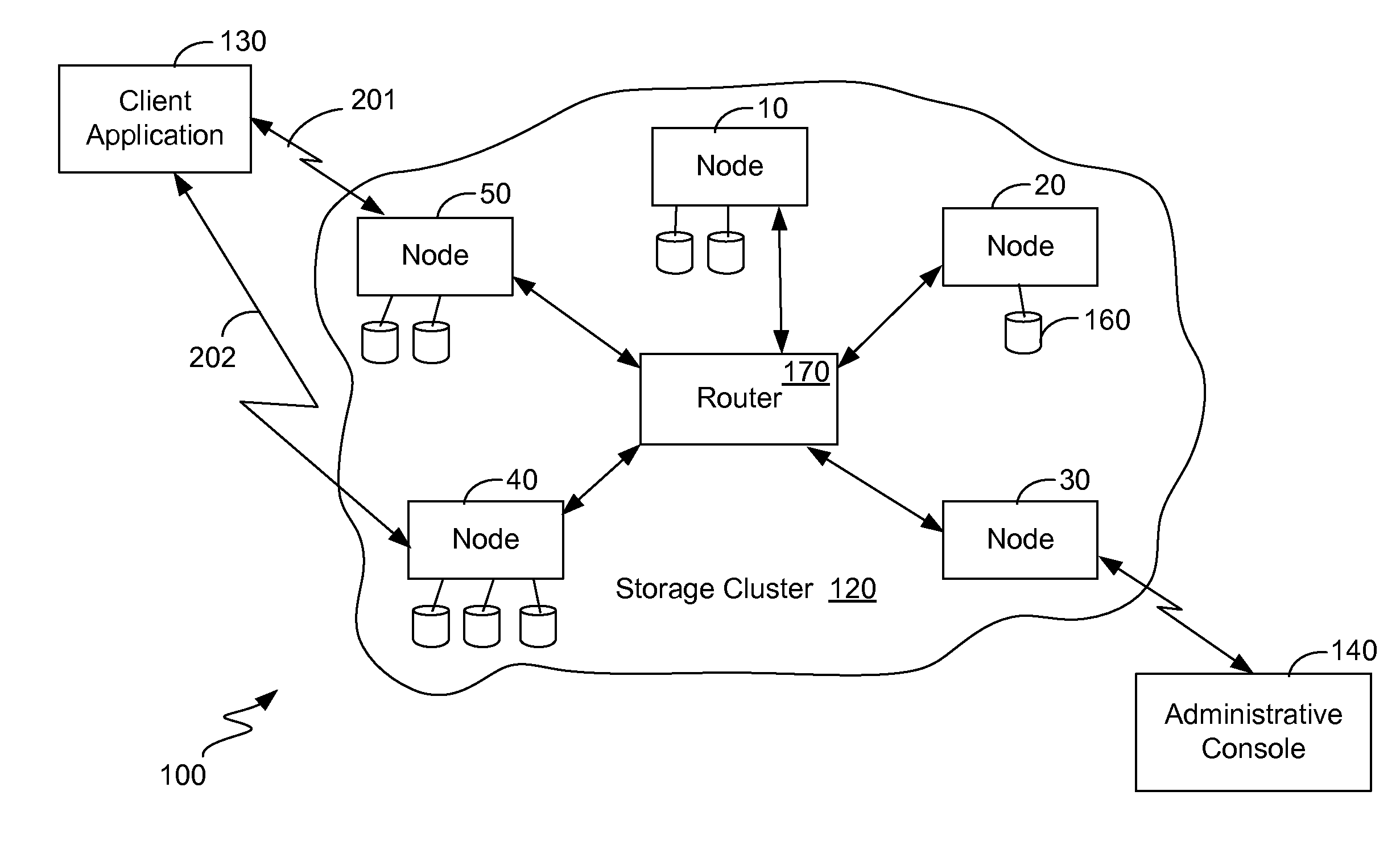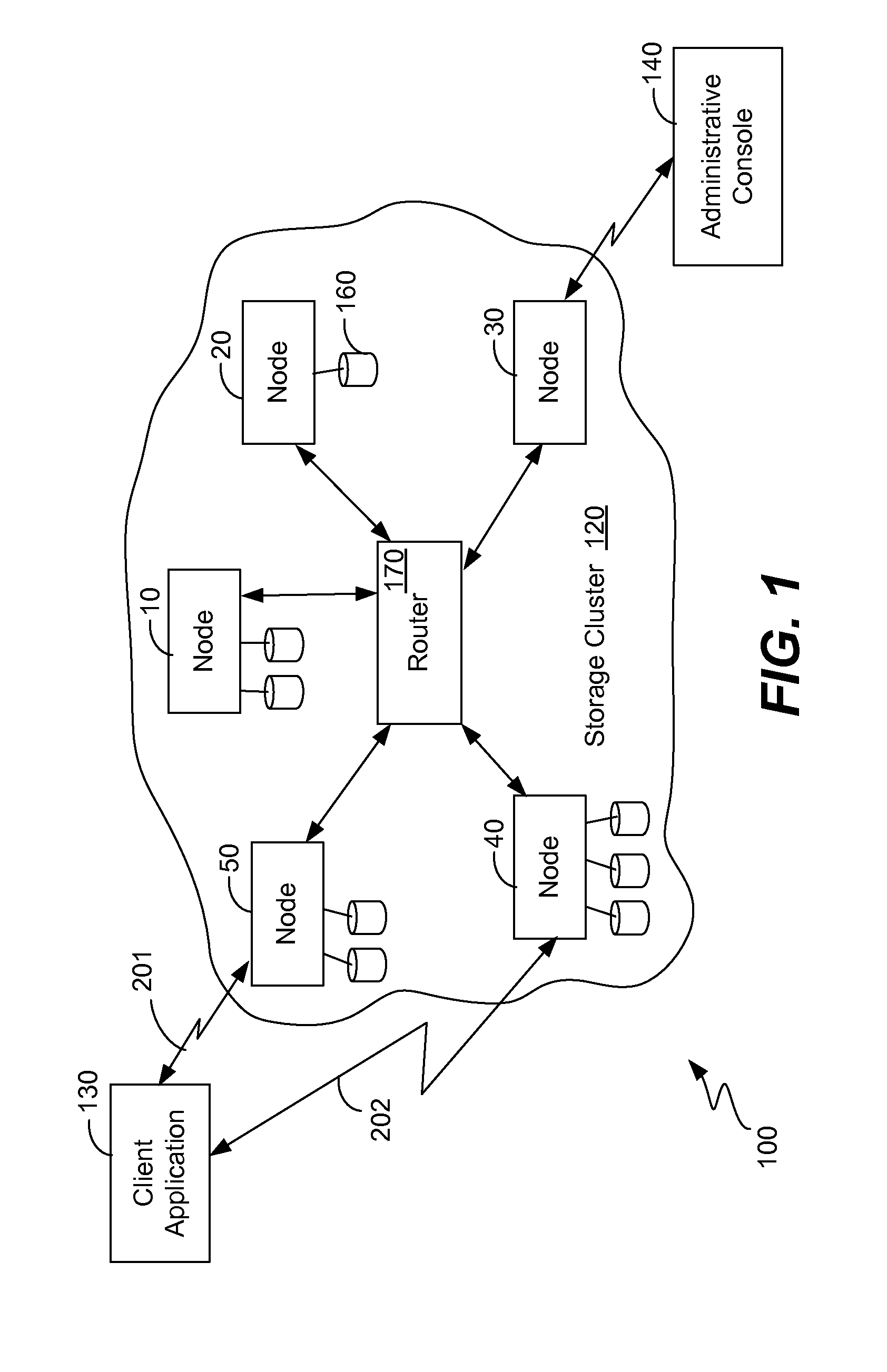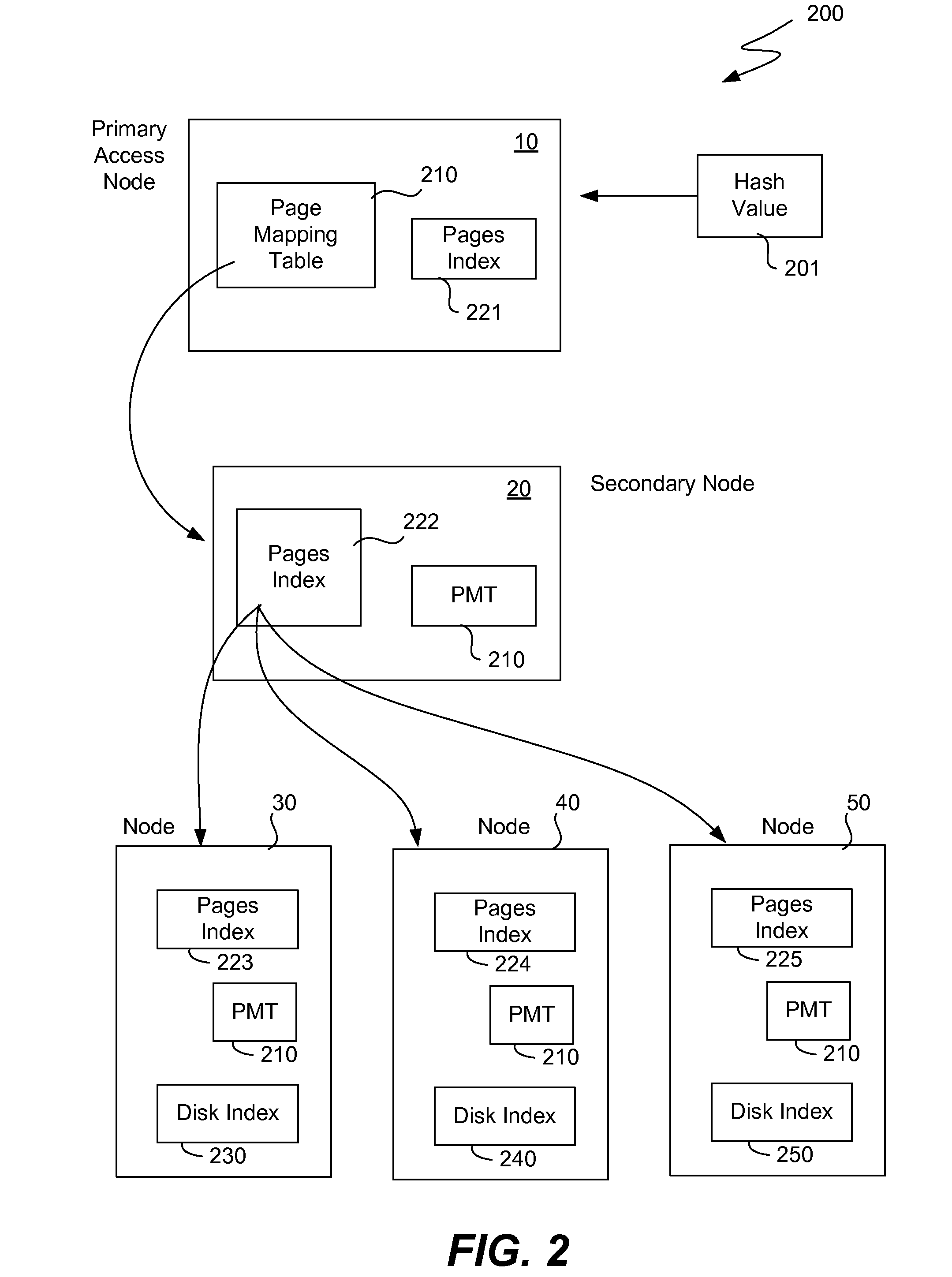Two level addressing in storage clusters
a storage cluster and data storage technology, applied in the field of data storage and retrieval in a fixed content storage cluster, can solve problems such as speeding up access time, and achieve the effect of reducing impa
- Summary
- Abstract
- Description
- Claims
- Application Information
AI Technical Summary
Benefits of technology
Problems solved by technology
Method used
Image
Examples
Embodiment Construction
[0025]As mentioned above, improvements are desired in the management of objects within storage clusters. It is realized that the multicast technique can be inefficient as the storage cluster and the number of objects it stores grows in size.
[0026]By way of illustration, consider that an application requesting a file (identified by a unique identifier) from a storage cluster sends a request to a node within the cluster that then multicasts this request to all other nodes within the cluster. Each node then interrupts what it is doing, searches its RAM index for the unique identifier received, and either responds “No, not here” or does not respond and returns from its interrupt. Storing a file identified by a unique identifier involves a similar multicast technique in which each node is interrupted and responds with whether or not it is able (or how much it would cost) to store the file. While this multicast technique is simple, elegant and reliable, it is realized that scaling can be ...
PUM
 Login to View More
Login to View More Abstract
Description
Claims
Application Information
 Login to View More
Login to View More - R&D
- Intellectual Property
- Life Sciences
- Materials
- Tech Scout
- Unparalleled Data Quality
- Higher Quality Content
- 60% Fewer Hallucinations
Browse by: Latest US Patents, China's latest patents, Technical Efficacy Thesaurus, Application Domain, Technology Topic, Popular Technical Reports.
© 2025 PatSnap. All rights reserved.Legal|Privacy policy|Modern Slavery Act Transparency Statement|Sitemap|About US| Contact US: help@patsnap.com



